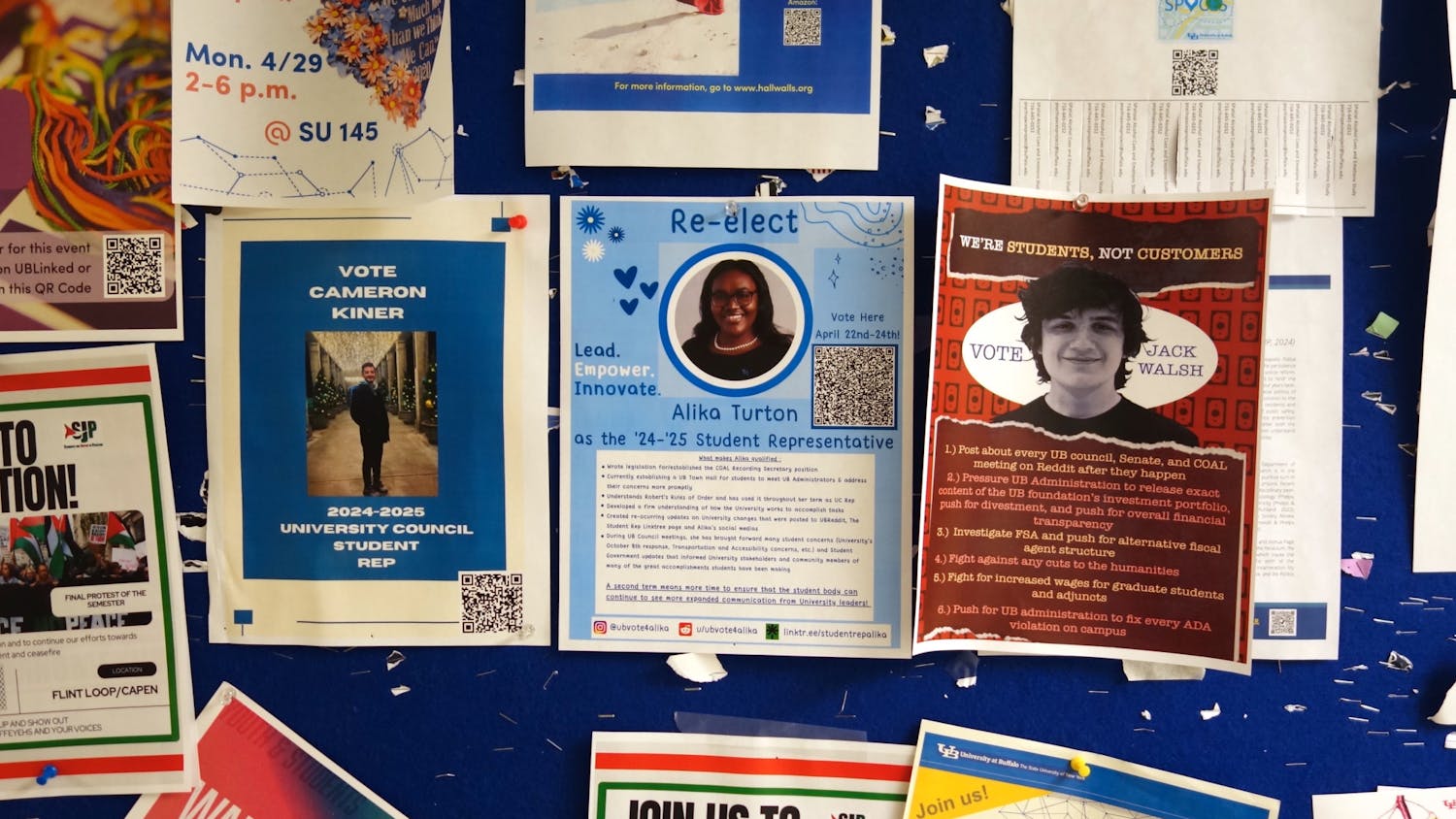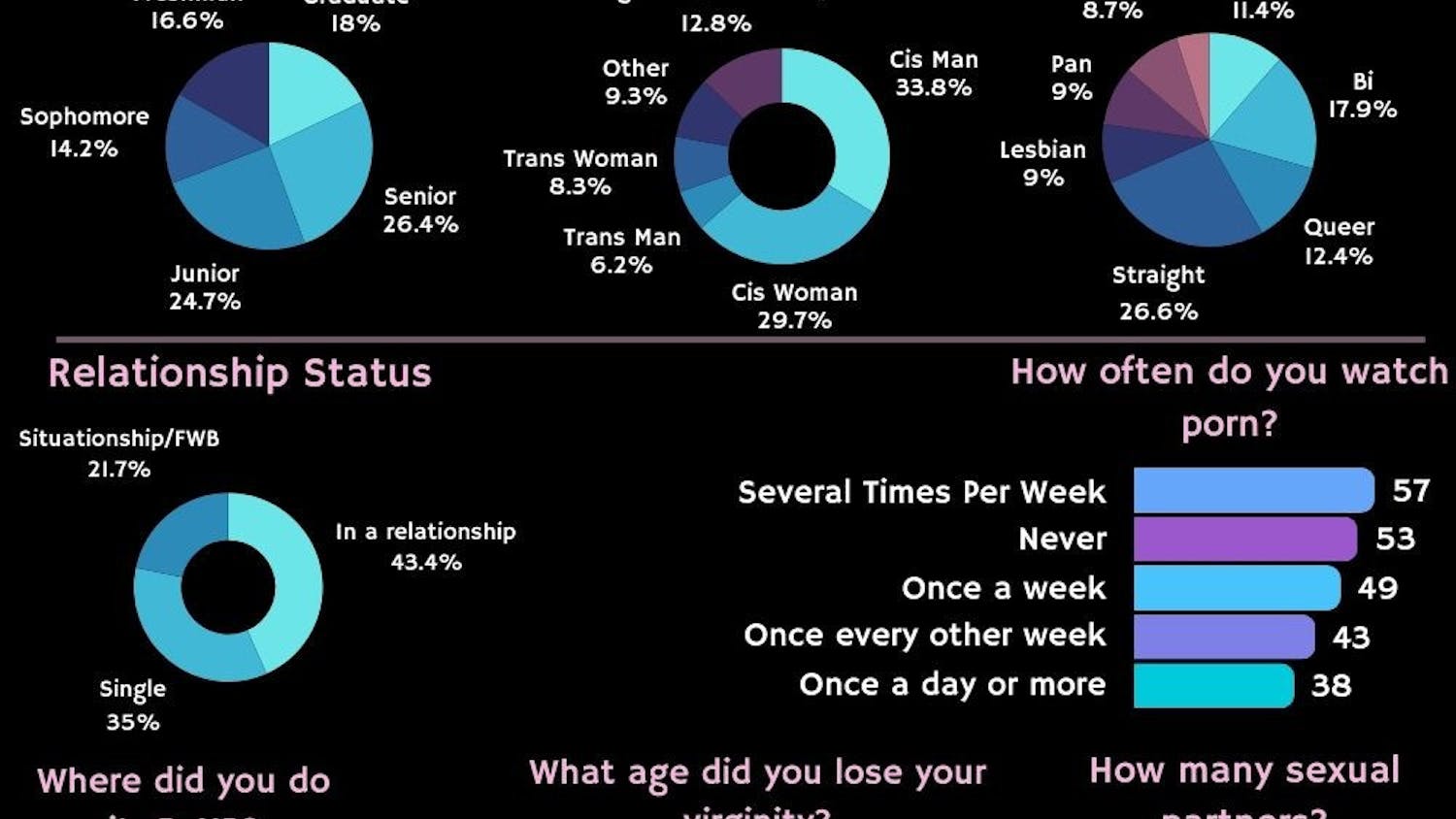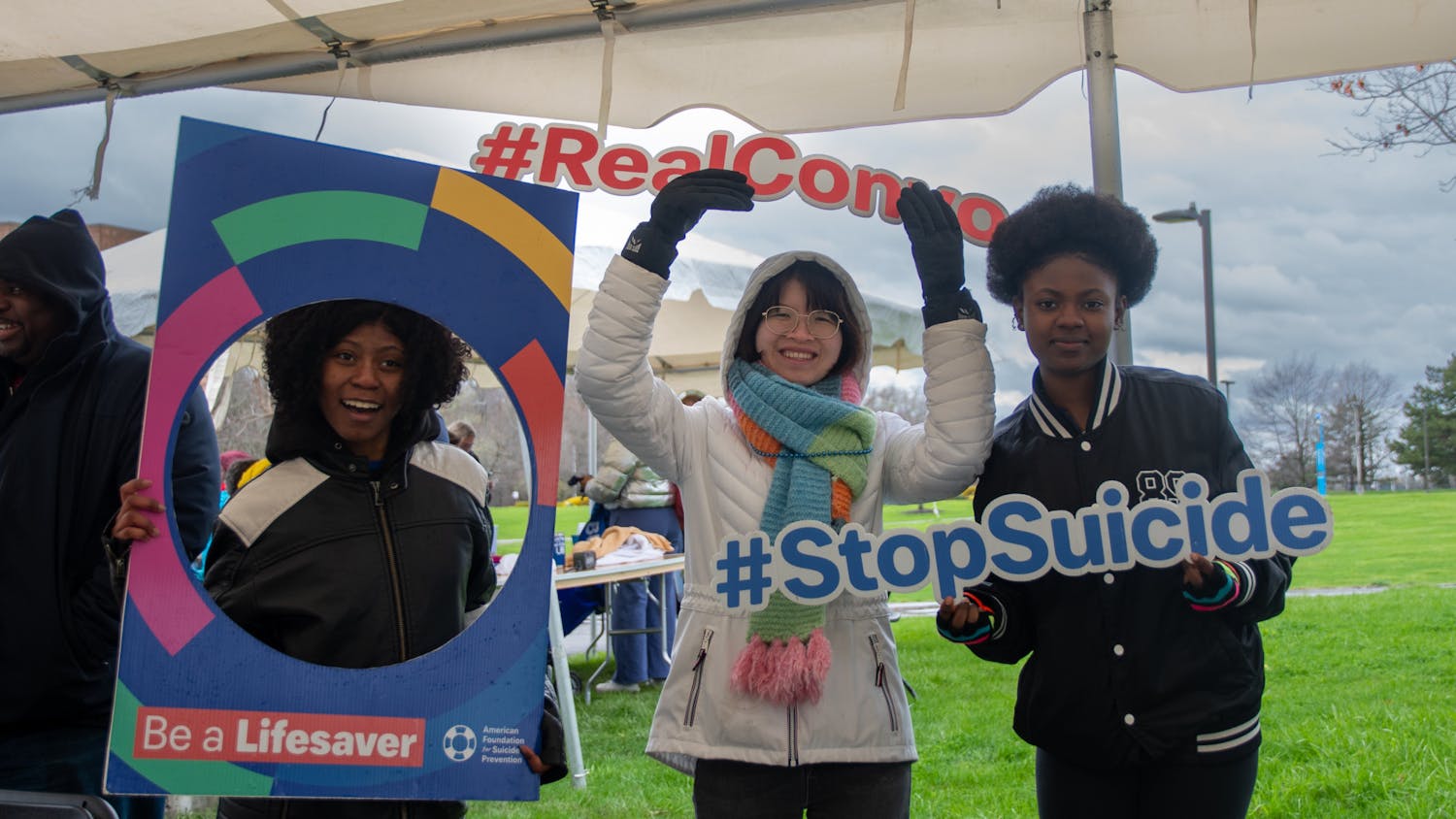UB students charged with misconduct cannot have a lawyer or law student represent them when they go before UB’s Student-Wide Judiciary panel. It doesn’t matter what the charge is. It could be for smoking pot, for cheating or for assault or rape. It also doesn’t matter how well-suited the student is to put up the defense. The shy introvert must mount a defense alone, as must the anxiety-ridden, the mumbler and the non-native speaker.
The court where students speak does not have a judge or a jury. Instead, it’s a panel of administrators and academics, some of whom have little to no legal backgrounds. Andrea Costantino – the former Campus Living director, who in October pleaded guilty to stealing more than $14,000 in student and faculty funds – served on the judiciary panel before her resignation in August. She was meting out justice to students, while she was stealing from them.
Faculty and administrators who serve as panelists fulfill a university “service” requirement, but generally decisions – although life-altering to students – do not affect panelists’ academic careers. As such, there is no incentive, beyond a personal sense of ethics, for a panelist to be fair or to take time to understand a case or find compassion for a student struggling for words.
The judicial review process at UB and at universities across the country is deeply flawed.
The Spectrum applauds the UB Civil Liberties Union for pushing UB administrators to let students have lawyers or law students represent them in administrative hearings. The group, which works to raise campus awareness for constitutional rights, insists UB is denying accused students’ the right to due process and we agree. Students charged with a crime are vulnerable and often feel too intimidated or embarrassed to speak for themselves or mount a stellar defense. Some simply can’t due to emotional or psychological conditions or because they lack the language skills.
In a court of law, a defendant can hire a lawyer to fight a speeding ticket. Yet at UB, students faced with crimes that can end their university careers are denied representation. In 2016, five UB students were expelled and 26 suspended.
Scott Weber, vice president of Student Life, believes the Student-Wide Judiciary
is meant to be an “educational” process for students. Yet, what exactly are the lessons?
The panels don’t offer real-world experiences; they operate under their own rules. The university calls the Student-Wide Judiciary process “best practice.”
For whom?
We believe an institution of higher learning, especially a public university, should have higher standards of justice. We ask UB administrators to be brave and break the long-standing euphemism of “best practice” and think critically about what’s fair and ethical for UB students who are accused of crimes.
UB administrators have an opportunity here to think critically about what it means to be innocent before proven guilty. Right now, students need administrators to act and fix a system that is failing its students when they need it most.





